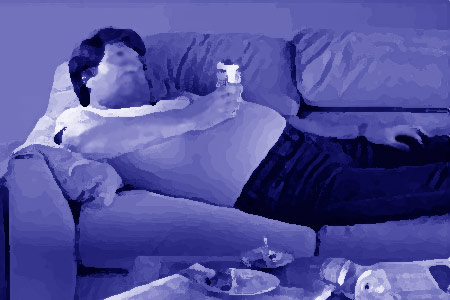An active life leads to good health most of the time. However, while active people have lot of energy in them, some people choose to remain couch potatoes without exploring their energy levels.
According to new studies, the sedentary people might have their genetics designed in such a way that high-energy physical activities, exercises, etc. are not very much appealing to the couch potatoes.
While one study is published in the journal Physiological Genomics and was conducted by researchers at University of North Carolina led by Charlotte kinesiologist J. Timothy Lightfoot, the other is yet to be published in forthcoming The Journal of Heredity.
The former study has identified 6 specific chromosomal locations while the latter shows 17 other genetic locations that have genetic effects called as the epistasis that are responsible for as much as 84 percent of behavioural differences witnessed in mice with high activity and low activity traits.
“Can you be born a couch potato? In exercise physiology, we didn’t used to think so, but now I would say most definitely you can,†said Lightfoot.
“The problem with the human literature in activity is that, up until recently, research has ignored the possibility that activity is regulated by biological as much as by environmental factors. What’s interesting is that there is a disconnect between the animal and the human literature in this – researchers haven’t been paying attention to the animal studies which, for example, have shown that that hormones affect activity.â€
The researchers are optimistic that the results derived from the study on mice can be implied on human beings as well; as the evidences are strong.
“The problem with the human literature in activity is that, up until recently, research has ignored the possibility that activity is regulated by biological as much as by environmental factors. What’s interesting is that there is a disconnect between the animal and the human literature in this – researchers haven’t been paying attention to the animal studies which, for example, have shown that that hormones affect activity,†noted Lightfoot.
Well, whether the study benefits anyone or not, one thing is for sure – people who are not genetically inactive will get a reason to stay the way they are!

